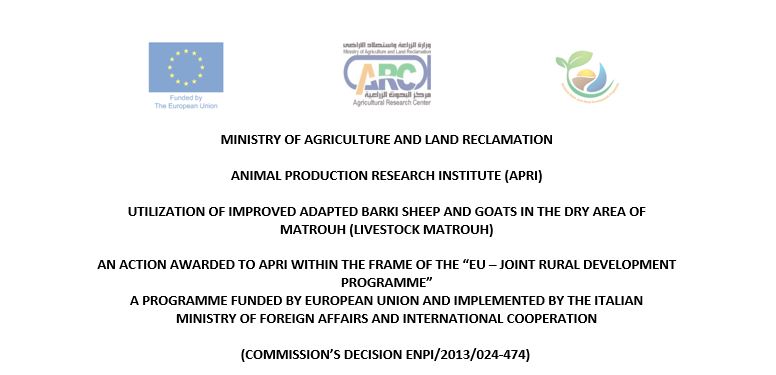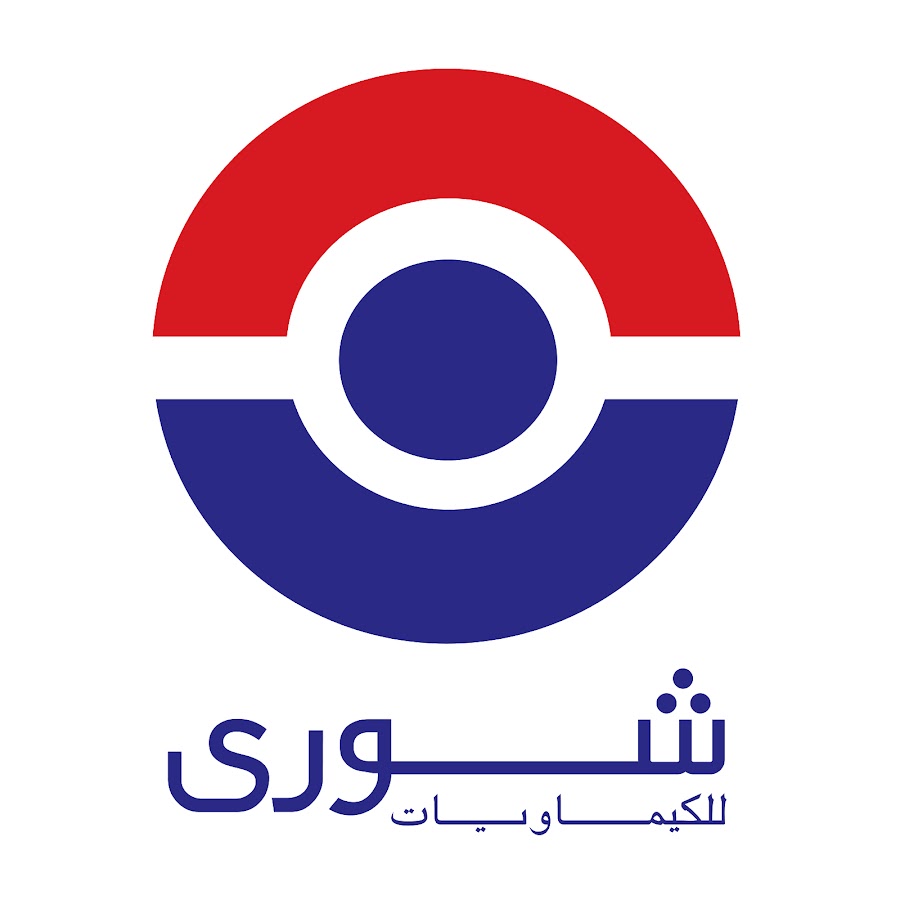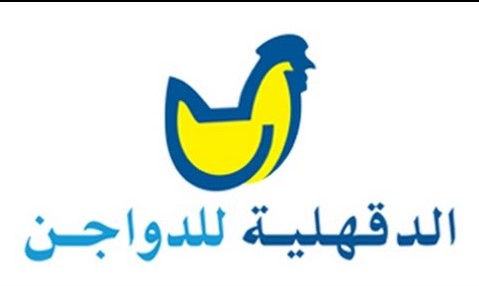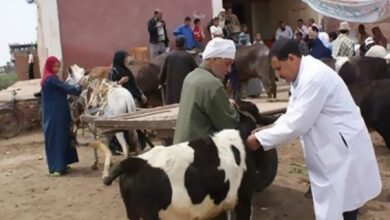Vacancy announcement ,Final review mission for Livestock Matrouh

MINISTRY OF AGRICULTURE AND LAND RECLAMATION
ANIMAL PRODUCTION RESEARCH INSTITUTE (APRI)
UTILIZATION OF IMPROVED ADAPTED BARKI SHEEP AND GOATS IN THE DRY AREA OF MATROUH (LIVESTOCK MATROUH)
AN ACTION AWARDED TO APRI WITHIN THE FRAME OF THE “EU – JOINT RURAL DEVELOPMENT PROGRAMME”
A PROGRAMME FUNDED BY EUROPEAN UNION AND IMPLEMENTED BY THE ITALIAN
(COMMISSION’S DECISION ENPI/2013/024-474)
PROFESSIONAL VACANCY ANNOUNCEMENT No. 01/2019
A SHORT-TERM EXPERT FOR A FINAL REVIEW OF THE RESULTS OF THE ACTION
“Utilization of Improved Adapted Barki Sheep and Goats in the Dry Area of Matrouh
(Livestock Matrouh)”.
Animal Production Research Institute (APRI) in Egypt intends to recruit an Expert to undertake a Final Review in the framework of the Action “Utilization of Improved Adapted Barki Sheep and Goats in the Dry Area of Matrouh (Livestock Matrouh)”, financed by the European Union and implemented by the Italian Ministry of Foreign Affairs and International Cooperation .
Deadline for submission of the CV: 01/09/2019, 12:00 pm (Cairo time) .
Contract duration: Up to 25 working days on a part-time basis over the 8 weeks period of the contract .
Expected start of employment: At the end of the selection process .
Duty station: Cairo with field visits to Matrouh Governorate .
Remuneration: will depend upon qualifications and experience of the selected candidate .
1- BACKGROUND
In 2009 the Government of Egypt (GoE) prepared the ‘Sustainable Agricultural Development Strategy towards 2030, which aims to modernize agriculture and make efficient use of the available natural resources. The main strategic axes of the Governmental policy document are: i) to promote the sustainable use of natural agricultural resources, ii) to increase land and water productivity, iii) to improve the competitiveness of agricultural products. The overall goal is to improve food security of the rural inhabitants and to reduce poverty rates in rural areas. Recent Governmental policies in rural development emphasized the needs of expediting the steps that can boost the economy and improve productivity. The following top priorities were set up by the Government: a) making more land available for agriculture and b) ensuring adequate food supplies at affordable prices .
The EU Joint Rural Development Programme (EU-JRDP) financed by the European Union in 2014 is in line with the above mentioned Governmental rural development policies. EU-JRDP is an area-based initiative implemented by the Italian Development Cooperation in Matrouh, Minya and Fayoum Governorates. The EU-JRDP aims to strengthen the capacities of rural associations, both farmers and non-farmers, in terms of sustainable management of local resources and to explore new and innovative solutions for generating income. The EU-JRDP overall objective is to improve the quality of life of the people living in the rural areas with special focus on the sustainable management of territorial resources. The EU-JRDP specific objectives are :
- To increase sustainable agricultural production by managing water resources more effectively and adopting Good Agricultural Practices (GAP);
- To improve rural livelihoods by promoting income-generating activities (agricultural/non-agricultural) and making best use of local resources.
The said action is co-financed in parallel by the Italian Ministry of Foreign Affairs through the “Matrouh Rural Development Project” and the “Socio-economic development initiative in the North West Coast of Egypt” (SEDNWCE) .
Technical and administrative management is assured by the Programme Management Unit (PMU) of the EU-JRDP. The main partner is the Ministry of Agriculture and Land Reclamation. The Contracting Authority is the Italian Embassy in Cairo .
Based on the 2nd call for proposals made by the Italian Embassy in Cairo for Scaling up Good Agriculture Practices in the Governorate of Matrouh, APRI submitted a concept note followed by a full application document aiming to implement this action. The Italian Cooperation and the EU-JRDP management approved the proposed action presented by APRI. In September 2016, APRI signed a contract for “Utilization of Improved Adapted Barki Sheep and Goats in the Dry Area of Matrouh (Livestock Matrouh)”. The duration of the contract was 36 months. The location of the action is the rural areas of the North West Coast (Matrouh Governorate) which extends from Fouka in the East to El-Salloum in the West, for a depth of 40 km from the coastline.
2- OBJECTIVES OF THE ACTION :
The Overall Objective is to improve the resilience and livelihood of local communities in the rain-fed area of Matrouh province, through better GAP of livestock and utilization and promotion of improved well adapted Barki sheep and goats.
Specific objectives :
- Establishing and operating breeders’ network for improving and promotion of Barki rams; Community–based approach for establishing breeders’ network for selection, testing, disseminating and promoting of improved heat tolerant Barki rams; with the full participation of the breeders in the procedure.
- Improving productivity of Barki goats through crossing with Damascus Bucks, utilized; improved Damascus bucks (from Cyprus origin), and disseminating it to goats’ breeders to improve milk and kid production from their Barki goats for domestic consumption and marketing of specific geographical dairy products.
- Improving local feed resources; enriching the available crop, vegetable and trees residues, through treatment with NPN, molasses and biological materials to fill part of the feed gab reducing feed costs; and promoting hydro grass barely as a green fodder for lambs and kids.
3- PURPOSE OF THE FINAL REVIEW
The main purpose of the independent and external Final Review is to assess whether the project has been implemented successfully in terms of achieving the objectives that have been set, and to learn from and propose potential improvements for implementation of similar future project interventions. It is also a purpose of the Final Review to determine whether those responsible for implementing the project were capacitated in carrying out monitoring and evaluation of the Action. The Final Review should therefore be done in a participatory manner, including the project’s stakeholders and beneficiaries in the work so that the review can also be a learning process for them .
4- DUTIES AND RESPONSIBILITIES OF THE FINAL REVIEW EXPERT
The Expert will be recruited as part timer on a short-term basis to undertake a Final Review of the project, “Utilization of Improved Adapted Barki Sheep and Goats in the Dry Area of Matrouh (Livestock Matrouh)” which is being implemented by APRI. The Final Review will evaluate the implemented activities, expenditures incurred, constraints encountered, and the final outstanding activities to be undertaken and assess the impact of the project action, identify the lessons learned and how the sustainability of the project’s interventions can be ensured .
The Expert will be based in Cairo with visits to the project area in Matrouh Governorate. The Expert will report to the EU-JRDP Team Leader and work closely with the project manager. His/her duties will include the following :
- To familiarize himself / herself with all relevant project documentation including: The Project Proposal, Budget for the Action and updated Logical Framework Matrix; General Conditions applicable to EU financed grant contracts; Interim Narrative and Financial Reports; the Communication and Visibility Plan.
- To establish contact with key project stakeholders including the EU-JRDP PMU, EU-JRDP Regional Officer in Matrouh; Ministry of Agriculture officials in Matrouh Governorate; representatives of other EU-JRDP grant projects, other project stakeholders and final beneficiaries.
- To carry out visits to Matrouh Governorate for the collection of information and data needed with the assistance of APRI staff.
- Preparation of monthly timesheets listing meetings held and site visits made.
On commencement of the assignment, the Expert will receive all available information from the project manager and appropriate visits and meetings will be arranged with the project’s stakeholders and final beneficiaries.
- Methodology of The Final Review
The review will be based on the findings and factual statements identified from review of relevant documents including the project contract documents, implementation reports, in addition to the baseline and follow-up reports produced by the project and the different promotional materials. The Expert will also undertake field visits and interview the stakeholder’s including the target beneficiaries, and government officials (both at regional and district levels). Participation of stakeholders in the review should be maintained at all the times, reflecting opinions, expectations, and vision about the contribution of the project towards the achievements of its objectives.
The primary source of information for the evaluation shall be interviews with beneficiaries, public officials and stakeholders within the communities where the project has been implemented. Information contained in the project’s documentation and reports will be an important source of background information, which will help the Expert to elaborate questions and identify interviewees.
5- EVALUATION ISSUES TO BE ADDRESSED
- Quality and Relevance of Project Design
Assess the appropriateness and relevance of the project design and activities towards expected goal, purpose, and outputs; and assess what adjustments should have been made, if any.
Have the changes that have taken place been relevant to the needs and priorities of the intended beneficiaries, and to the conditions of families living in poverty?
- Efficiency of Planning and Implementation
Assess to what extent the available resources have been used economically in delivering the project outputs/results, in terms of quantity, quality and timeliness (efficiency).
Key guiding questions :
- Is the project action plan used and up to date?
- Cost and value for money: To what extent have the benefits justified the project costs?
- What percentage of activities in the project proposal and budget have been delivered?
- Is the expenditure incurred in line with the project budget ?
- Is monitoring data being collected as planned, stored, and used to provide guidance for future projects ?
- How have the contributions from governmental partner institutions been forthcoming (as set out in the LFM), communities, target beneficiaries, other stakeholders, and authorities ?
To what extent has there been cooperation and coordination with other EU-JRDP grant beneficiaries and other donor funded projects and programmes operating in Matrouh Governorate ?
- Effectiveness
Assess the major achievements of the project to date in relation to its stated objectives and intended results/outputs based on the updated log frame .
Key guiding questions :
- To what extent the intended beneficiaries are actually benefiting from the project results?
- To what extent the achieved/expected results will contribute to the achievement of the planned specific objectives ?
- Impact
Assess the extent to which the benefits received by the target beneficiaries have had a wider overall effect on larger numbers of people in the sector or districts or in the governorate.
Key guiding questions :
- To what extent is the project contributing to a long-term positive effect on livelihoods within the project’s target area ?
- How is the project making a difference ?
-
- Potential for sustainability, replication, and magnification
Assess to what extent the positive outcomes of the project at purpose level are likely to continue and be sustainable after the project completion.
Identify and describe both the positive and negative lessons learned from implementation of the project and provide a set of practical recommendations for any improvements or modifications which should be adopted by similar future projects which may be implemented in Matrouh Governorate .
6- Reporting Requirements/outputs and deliverables
The final output of the Final Review is required in report format, which should adhere to the EU standard format[1]. The comprehensive report should be submitted in the English language and should be of high quality (publishable). It should provide substantive evaluation against indicators as outlined in the project proposal and the updated log frame and should be structured in terms of issues and related findings, assessment of performance, description of best practices, conclusions, lessons learned, recommendations and/or scenarios in line with relevance, efficiency, effectiveness, impact, and sustainability. The Final Review should focus on the key topics as mentioned above as well as be forward looking and propose practical improvements and modifications which should be adopted in the implementation of similar future projects .
The Expert should present the draft Final Review report, within six weeks from date of contract commencement, in the English language, to the EU-JRDP Team Leader, and the project manager, which covers all aspects of the review as detailed above .
In parallel with submission of the draft report the Expert will make a presentation of his/her findings and recommendations to an invited group of key project stakeholders including EU-JRDP PMU representatives and APRI team .
The Expert will submit a copy of final version of the Final Review report, within two weeks from the presentation date, in both hard and soft copies, to the EU-JRDP Team Leader ,and project manager ,which incorporates comments made on the initial draft as well as any pertinent points arising during the presentation of the findings and recommendations mentioned above .
7- Payment Schedule
Payment of the Expert’s fees will be made by APRI in Euro (or its equality in EGP) according to the following schedule :
- 30% on initial signing of the assignment contract ;
- 30% on confirmed receipt of the draft report by the EU-JRDP ,and project manager .
- 40% on completion and approval of the final report by EU-JRDP .
All payments of fees made to the Expert will be inclusive of transportation, accommodation, and out of pocket expenditure.
8- EXPERTISE REQUIRED
-
- Expert I Team Leader (Category I expert), for 25 working days :
Education :
The expert should have PhD Degree in a domain relevant to the assignment (preferably in the following sectors: rural development, economics and animal production) .
Experience :
- At least 25 years’ experience in Development Cooperation.
- At least 15 years’ experience in the field of livestock and rural development;
- Good experience in institutional development, at the level of local authorities; and working with civil society organizations;
- Carrying out monitoring and evaluation of development program:
- Experience with EU led project/project evaluation will be an asset;
- Working in countries of the European Neighbourhood. Experience and in Egypt is an asset.
Language skills
Fluent in English. Knowledge of Arabic is preferable
8.2 Expert II, (Category I expert), for 15 working days :
Education
The expert should have a PhD Degree in a domain relevant to the assignment (preferably: socioeconomic, rural development and animal production) .
Experience
- At least 20 years’ experience in Development Cooperation.
- At least 10 years’ experience in the field of livestock, rural development, under arid conditions;
- Good experience in institutional development, especially at the level of local authorities; working with civil society organizations;
- Experience in interventions financed by the European Union will be an asset;
- Experience in Egypt will be an asset.
Language skills
- Fluent in English and Arabic
- The following preferred requirements will be taken into consideration in the selection process:
- Experience for monitoring and evaluation of grants financed by the European Union;
- Experience in the project area and experience of rural development issues in Egypt;
- Knowledge of the application of good agricultural practices (GAP) particularly in dry land areas;
- An understanding of local development approach, with a focus on participatory processes, joint management, and familiarity with environmental and gender issues;
- Willingness to undertake field visits and interact with different stakeholders, especially final beneficiaries;
- Experience in implementing Natural Resource Management measures.
- EVALUATION OF APPLICATIONS
The selection will be conducted by an evaluation committee formed by its Chairperson who will be nominated by the project manager. The committee will be composed of APRI staff with observers from the EU-JRDP PMU .
The candidate will be evaluated according to the following criteria :
Education, experience, competencies, and preferred requirements (Max 70 points) .
Verification of the possession of the essential and preferred requirements according to the documentation presented by the candidate, with particular reference to the academic titles obtained and the professional experience gained. Candidates scoring at least 55 points will be included in the shortlist and will be invited for an interview .
Interview (Max 30 points)
- The interview will be carried out at the premises of APRI in Cairo, or through audio/video connection (e.g. Skype),
- No reimbursement will be granted to those travelling to Egypt for the interview.
- Candidates scoring at least 85 points at the end of the process will be included in the final list of endorsed candidates.
- Youngest candidates will be preferred in case of a final equal score.
- HOW TO APPLY
The submission of the application duly signed (Annex 1) will indicate the number of the vacancy announcement, and should include the attached form Legally Binding Statement (Annex 2), indicating :
- Surname, name, date, and place of birth.
- Absence of conviction in any criminal offence or under any criminal proceeding pending.
- No involvement in current legal or penal action for crimes against Public Administration.
- Studies certificates indicating the dates of issue and the names of Academic Institutions.
- Fully possession of political and civil rights.
- Not having been dismissed for fault from employment by a Public Administration office.
Any false declaration will incur on penal sanctions.
The application should also include:
- Cover letter in English (max one page).
- Copy of valid Passport or ID card.
- Curriculum vitae in English.
- The proposed work plan for implementation of the Final Review and indicative timetable of activities to be undertaken .
- A quotation of the total fees payable by APRI to undertake the Final Review inclusive of all accommodation, transport, meals and other out of pocket expenditure expected to be incurred during implementation of the review .
The signed application and all attachments should be received within and not beyond 12:00 pm (local Cairo time) of the 01/09/2019 at the following email: [email protected] and [email protected] .
We encourage applicants to submit the application well before the deadline date. The subject of the email must contain the vacancy announcement number.
The applicant must communicate any variation which may have occurred after the presentation of the application to this vacancy.
Please be aware that the application’s attachments must not exceed 9MB in size and that applicants will receive a confirmation email of the received application.
In case applicants will not receive the email, it will be their responsibility to contact the above -mentioned emails and request the confirmation.
The APRI decline any responsibility for application not received .
- EXCLUSION FROM SELECTION PROCEDURES
The applications containing the following defects will not be considered valid :
- Application made without having all requirements described in this announcement;
- Applications not signed;
- Applications received after the deadline of the present announcement;
- RESULTS OF THE SELECTION
The short-listed candidates will be informed on the results of the initial selection process .
- PROTECTION OF PRIVACY
The candidates will give their unambiguous consent for the use of their personal data for the purpose of this selection process .
- PROTECTION CLAUSE
At any stage of the selection process the Animal Production Research in Cairo has the right at his own discretion to not entrust the work assignment related to the present vacancy announcement .
Project manager
APRI
Prof. Adel Aboul Naga
ANNEX 1
Object: Professional Vacancy Announcement No. 01/2019
To whom it may concern ,
I hereby confirm my participation to the selection process for the vacancy indicated in the object and hereby enclose all the following documentation :
- Legally binding statement (Annex 2)
- Signed Curriculum Vitae in English
- Cover Letter in English
- Copy of valid ID document
- The proposed work plan for implementation of the Final Review and indicative timetable of activities to be undertaken
- A quotation of the total fees payable by APRI to undertake the review inclusive of all accommodation, transport, meals and other out of pocket expenditure expected to be incurred during implementation of the review.
I would like to receive any communication at the following telephone number :
………………………………………………………………………………………
and email address : …………….…………………………………………….
I give my unambiguous consent to the use of my personal data for the purpose of this selection process
Yours faithfully
(Signature)
(Your name)
(Date and place)
ANNEX 2
LEGALLY BINDING STATEMENT
- Surname:
- Name:
- Date and Place of birth:
- Residence:
- Citizenship:
- Absence of conviction in any criminal offence or under any criminal proceeding pending :
□ YES □ NO
- Studies Certificates :
Date of issue :
Academic Institution :
- Studies Certificates :
Date of issue :
Academic Institution :
(Signature)
(Date and place)
ANY FALSE DECLARATION WILL EXCLUDE THE CANDIDATE FROM THE PROCEDURE OF SELECTION OR THE JOB ASSIGNEMENT .
[1] See “Outline of an Evaluation Report” on page 48 of Aid Delivery Methods, Volume 1: Project Cycle Management, March 2004 :- https://ec.europa.eu/europeaid/sites/devco/files/methodology-aid-delivery-methods-project-cycle-management-200403_en_2.pd .









